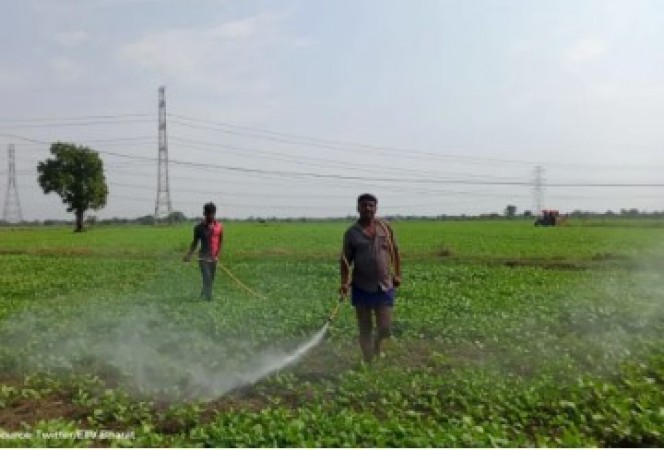
In the heartlands of Narmadapuram, an intriguing agricultural practice has garnered attention: the application of liquor to crops. This unconventional method has sparked curiosity among farmers and onlookers alike, prompting a deeper exploration into its rationale and efficacy.
Historical Context: Tradition Meets Innovation
Exploring Traditional Agricultural Practices
Narmadapuram, steeped in tradition, boasts a rich agricultural heritage. For generations, farmers in this region have relied on age-old techniques to nurture their crops and ensure a bountiful harvest. These practices, deeply rooted in local customs and wisdom, form the backbone of the region's agricultural landscape.
Embracing Innovation in Farming
Amidst the traditional backdrop, innovative approaches have begun to emerge, challenging conventional norms and pushing the boundaries of agricultural experimentation. The use of liquor in farming represents one such departure from tradition, signaling a willingness among farmers to adopt novel methods in pursuit of enhanced crop yields and quality.
The Role of Liquor in Agriculture
Unveiling the Purpose
At first glance, the notion of applying liquor to crops may seem perplexing. However, a closer examination reveals a method grounded in both science and local knowledge.
Enhancing Soil Fertility
One of the primary reasons cited for the use of liquor in agriculture is its purported ability to enhance soil fertility. Certain alcoholic beverages, when diluted and applied to the soil, can contribute valuable nutrients and organic matter, thereby enriching its composition and promoting healthier plant growth.
Combatting Pests and Diseases
Additionally, liquor is believed to possess pesticidal properties, acting as a natural deterrent against pests and diseases that threaten crop health. By applying alcohol-based solutions to their fields, farmers aim to safeguard their harvests and minimize the impact of harmful infestations.
Challenges and Controversies
Navigating Regulatory Frameworks
Despite its perceived benefits, the practice of using liquor in agriculture is not without its challenges. Regulatory frameworks governing the use of agricultural inputs often do not account for unconventional substances like alcohol, leading to ambiguity and potential legal hurdles for farmers.
Environmental Concerns
Moreover, concerns have been raised regarding the environmental implications of widespread liquor application in farming. Critics argue that excessive use of alcohol-based solutions may disrupt delicate ecological balances and contribute to soil and water contamination if not managed responsibly.
Conclusion: Towards Sustainable Farming Practices
In conclusion, the use of liquor in Narmadapuram's agriculture underscores the dynamic interplay between tradition and innovation in rural communities. While its efficacy remains subject to debate, this practice reflects farmers' adaptive spirit and their quest for agricultural sustainability.
By marrying age-old wisdom with modern insights, farmers in Narmadapuram continue to chart new frontiers in farming, demonstrating resilience and resourcefulness in the face of evolving agricultural landscapes.
Cotton candy can cause cancer! Know why two states banned cotton candy
Eating too much garlic can spoil your health, know how much should you eat in a day?